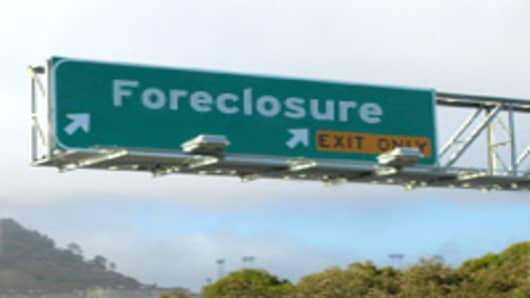An awful lot of you disagreed with my post yesterday that real estate investors should be included in the bailout and should not be reviled.
I want to follow up with a little clarification of my point.
Like many of you, I frankly, vehemently, for a long time, didn’t think anyone should be bailed out. I am a “responsible” homeowner. I bought a home I knew I could afford and signed on for a mortgage I knew I could pay. I had the chance to buy a much larger, much fancier home, with a much riskier loan at the start of the housing boom; I chose not to. It incenses me that I’m paying for other peoples’ bad choices and am being penalized for my good choice.
But at some point I have to be realistic too and accept that this is the bitter pill I have to swallow in order to see the economy in which I live and work turn around. I am losing money every day in my home, in my 401K and in my kids’ college funds. I want that money back, or at the very least I want to stop bleeding. If the government doesn’t bail out the housing market, then I keep losing money. That’s just a fact. I think we’re past the point of believing that it will just work itself out through supply and demand and improved affordability. I have to say to myself, as I often say to my kids, “Life isn’t fair.”
In arguing that investors should be included in the bailout, I was arguing against this administration’s philosophy that only people who live in the homes they own are “responsible.” Again, I know there were plenty of investors out there who bought properties in bulk with no money down with the sole intention of flipping them as soon as possible for quick cash. But as I argued, there are also many other Americans who bought one or two properties, years before the housing boom, to supplement income, help out family members or who simply chose real estate instead of stocks or bonds. Why are these folks irresponsible? Why should they be cut out?
Many of you argued that this bailout should only be about keeping families in their homes and off the streets, and in some cases it is. But the bulk of the borrowers who are in trouble on their loans are in trouble because they bit off more than they could chew; they used risky mortgage products to buy homes above their pay grade, and now they’re paying the price. Frankly, they bought their homes with dollar signs in their eyes, looking to cash out money as the home’s value increased, and they did, and that’s why a lot of them have no equity left. I said it a hundred times at the height of the boom: Americans have turned their homes into ATMs. Just watch David Faber’s amazing documentary “House of Cards” on CNBC and you’ll meet some of these folks.
These borrowers were investors—owner, occupier investors. I know this because the bulk of the loans in trouble were made during the housing boom. The bulk of the loans in trouble are in states where home prices soared the farthest, where the investment paid off the most. And that’s why these home prices in these states fell the farthers. The borrowers in trouble are not people who bought a home ten years ago with a 30-year fixed and with the sole intention of enjoying the space. Yes, you could argue that as more people lose their jobs, more of those borrowers will fall behind on payments, but I’m talking about the borrowers that jumped at the chance to profit off the housing boom, and by profit I don’t necessarily mean buy and flip, but buy over their heads and cash out quick profits, multiple times, as their investment grew.
I hate the bailout, trust me, more than any of you know. But I say to the administration: If we have to do it, just do it, and do it for everyone. Don’t push this holier-than-thou agenda that there are some “responsible” borrowers out there and some “irresponsible” ones, and somehow our government is going to decide who’s who.
Questions? Comments? RealtyCheck@cnbc.com



